History
now browsing by tag
Posted by: aragonbilingue | on agosto 21, 2017
Medieval Death
The University of Cambridge offers Medieval Studies among its International Summer Programmes. In August 2017, it included two courses about The Black Death and Medieval Death and Dying that I attended thanks to the Erasmus+ project of my school. Although probably not every one agrees, these topics can be interesting not only for scholars, but also for secondary students. In a time when walking dead and forensic research are increasingly present in the entertainment and popular culture, some school activities could be developed from those topics. Let’s see some possible sources to study medieval death.
The following text is extracted from Life and miracles of Saint Modwenna written in Latin by Geoffrey of Burton in the 12th century:
«[…] That very same day on which they were interred they appeared at evening, while the sun was still up, at Drakelow, carrying on their shoulders the wooden coffins in which they had been buried. The whole following night they walked through the paths and fields of the village, now in the shape of men carrying wooden coffins on their shoulders, now in the likeness of bears or dogs or other animals. They spoke to the other peasants […]»
This photo pictures a medieval shrine showing holes for touching the relics presumably of Saint Osmund, who died in 1099, and it is kept at Salisbury Cathedral.
This article about the Black Death explains the huge impact of the plague on the medieval European people. This summary is a good introduction to know more about the Black Death in the past and in recent times. This presentation is useful for visual learners and updates the information available about the Black Death from the last research.
This archeological research can be the base for a forensic case study on medieval bones.
Posted in 2 ESO, C. - SECUNDARIA, Literacy, Noticias, Social Sciences, Teacher training | No Comments »
Tags: Erasmus+, History, Teacher training
Posted by: aragonbilingue | on enero 11, 2017
Thomas Becket’s story in Anento (Zaragoza)
If you are teaching the MECD-British Council integrated curriculum, you know how interesting can be using elements to make a strong British-Spanish connection for your students. Some are well known, like the story of Henry VIII and Catherine of Aragon, but some are not. The altarpiece of the small village of Anento in Zaragoza province, Aragon, has one of these less known connections. It is a gothic masterpiece painted by Blasco de Grañén in the 15th century which shows three stories about our Lady of Mercy, Saint Blaise and Saint Thomas Becket. Yes, Thomas Becket, the saint of Canterbury appears here and this is because his murder was a prefiguration of the problems the archbishops of Zaragoza faced at the beginning of the 15th century, a time of political instability in the Crown of Aragon. If you want to know more about this beautiful altarpiece, you can read this book, in Spanish, M.C. Lacarra, Retablo de San Blas, de la Virgen de la Misericordia y de Santo Tomás Becket de la iglesia parroquial de Anento (Zaragoza).
Posted in 2 ESO, C. - SECUNDARIA, Cross-Curricular | No Comments »
Tags: Art, History
Posted by: aragonbilingue | on julio 13, 2016
Discoveries, explorers and rulers of the sea at Naveluna
A small project about the discoveries and explorers of the Early Modern Era in Social Science. The pupils could choose their task: a storyboard, a fictional diary or an oral description of a painting.
There is a presentation that summarises the work of the students. You can download it in the following link: Students work Sociales Naveluna 2
This project was part of an interdisciplinary one built around Mathematics and Astronomy, called Naveluna, at IES Pedro de Luna, Zaragoza.
Posted in 2 ESO, Cross-Curricular, Social Sciences | No Comments »
Tags: History, Projects
Posted by: aragonbilingue | on octubre 29, 2015
Estancia profesional en el Reino Unido
Entre el 4 y el 17 de octubre de 2015, la profesora Elvira García Arnal, del IES Pedro de Luna de Zaragoza, ha realizado una estancia profesional de dos semanas en la Fairfield High School, de Peterchurch, Hereford, Reino Unido, dentro del programa de estancias profesionales del MECD.
La estancia ha sido una experiencia grata que ha permitido a los alumnos de español de Fairfield un contacto más directo con la lengua que estudian y a la profesora española observar la metodología con la que trabajan los profesores de Geografía y de Historia en un centro inglés, aspecto primordial dentro de la enseñanza bilingüe de currículo integrado (MEC-British Council). Agradecemos de nuevo la colaboración y amabilidad de la comunidad educativa de la Fairfield High School y especialmente del profesorado de MFL y Humanities para que esta estancia haya sido posible.
A continuación hay varios enlaces a materiales elaborados tras esta estancia profesional:
Peterchurch UK for Aragonbilingue
Poppies in the UK after professional stay
Juan de Lanuza patriot or rebel
Philip II prudent king or evil ruler
También se puede ver una presentación en inglés sobre esta estancia en el siguiente enlace:
Professional stay at Fairfield
Y la colaboración en el blog de Estancias profesionales de Educalab (MECD):
Entradilla en el blog de Estancias Profesionales
Posted in 2 ESO, 3 ESO, 4 ESO, C. - SECUNDARIA, Cross-Curricular, Social Sciences, Teacher training | No Comments »
Tags: Estancias, Geography, History, Settlements
Posted by: aragonbilingue | on octubre 21, 2015
Women of the last centuries
If you are a Social Science teacher, maybe you want to introduce the study of the last three centurias of History focusing on the people. Then, you can use this powerpoint presentation that includes the portraits of four different women.
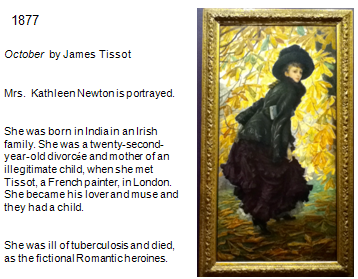
Find the presentation here: Women of the Contemporary Era for Aragonbilingue
Posted in 4 ESO, C. - SECUNDARIA, Cross-Curricular, Social Sciences | No Comments »
Tags: Art, History
Posted by: aragonbilingue | on noviembre 26, 2011
Analysis of Liberty Leading the People by Delacroix
This slide show analyses the key work of art about the 1830 Revolution in France. This painting by Eugene Delacroix is almost a universal symbol of freedom but not only this.
Liberty Leading the People is in the public domain in those countries with a copyright term of life of the author plus 100 years or fewer.
Liberty-leading-the-people-by-Delacroix
Posted in 4 ESO, Social Sciences | No Comments »
Tags: Art, France, History, Liberalism, Romanticism
Posted by: aragonbilingue | on junio 10, 2011
«Ebro riverside walk»
 By Julia ARA, Isabel BURBANO, Maribel RIVARÉS (IES Pedro de Luna)
By Julia ARA, Isabel BURBANO, Maribel RIVARÉS (IES Pedro de Luna)
Enlace a Experiencia didáctica
Link to the website of the interdisciplinary activity that was carried out by teachers of Science-Geography-History and students in IES Pedro de Luna about the river Ebro.
https://sites.google.com/a/iespedrodeluna.es/ebro-riverside-walk-1-eso/
Posted in Cross-Curricular | No Comments »
Tags: 1 ESO, Geography, History, Rivers, Science

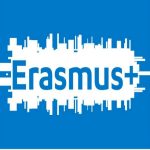
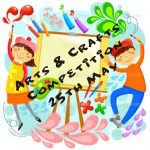


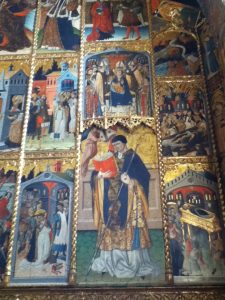
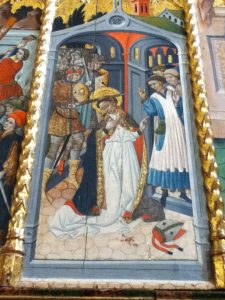
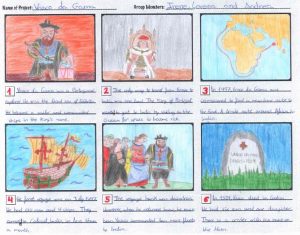
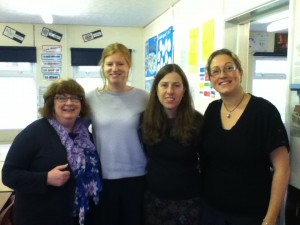
 D5 Creation
D5 Creation